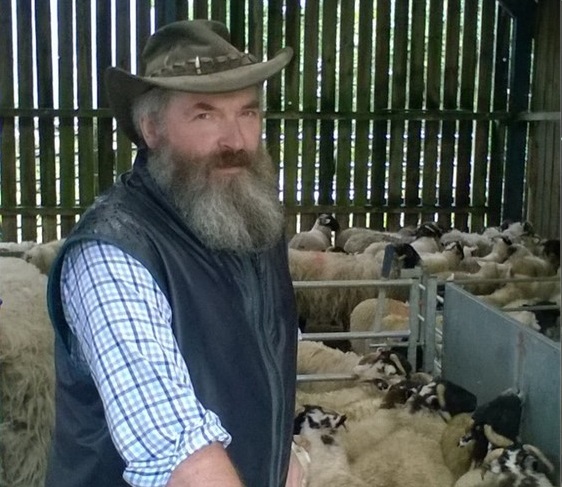Soft punishment for sheep worrying culprit leads to call for harsher penalties

A man has been sentenced to just 80 hours of community service after his dogs attacked sheep, leading the industry to call for harsher penalties.
Nicholas Rowley, 56, has been sentenced to community service for a sheep attack which cost farmer Brian Walker £4,100.
Mr Rowley, from Rothesay in Argyll, allowed four dogs he had responsibility for to seriously injure and kill a total of 17 sheep on farmland near Inveraray.
The injuries inflicted on the sheep during this attack were so severe that photographs taken afterwards were deemed unsuitable for publication.
Mr Rowley previously pled guilty to this offence at Lochgilphead Sheriff Court under the Dogs (Protection of Livestock) Act 1953, Section 1(1) and (6).
On Tuesday 11 September, Sheriff Thomas Ward sentenced Mr Rowley to an 80-hour community pay back order to be completed within three months.
During the court hearing, Sheriff Thomas Ward told the court he acknowledged that Mr Rowley was in no position to pay either a fine and/or any compensation to the affected farmer.
He expressed frustration that under the current legislation he was unable to impose a prison sentence, nor could he disqualify Mr Rowley from keeping dogs.
He took the extent of the crime very seriously but recognised that he was limited to what sentence he could make.
Lenient punishment
The lenient sentencing has led NFU Scotland to call for harsher penalties for those who let their dogs attack livestock.
The victim, Mr Walker of Carloonan Farm, said that the outcome of the case has been disappointing, but that he is not surprised.
He commented: “This incident was particularly stressful. Although we took a heavy financial loss, this has not been my focus. The cost of the damage is so high as these ewe hoggs would have been used on the farm for breeding for years to come.
“We have done everything by the book since this happened to ensure if was fairly, and properly put through the justice system. However, even with doing this we have been let down by antiquated legislation.
“It is now evident that the farming community in Scotland doesn’t have any protection from instances of livestock worrying as the sanctions dog owners face are far too lenient to deter them from doing this again," Mr Walker said.
Dog Control Notice
He said for those farmers suffering problems with dogs to contact their local dog warden to seek a Dog Control Notice (DCN) to be put in place.
This is the only means available of being able to control dogs causing persistent problems with livestock at the present time.
Mr Walker added: “Unfortunately, once these dogs have a taste for it, they are likely to attack again, and I fear the next time it may not be an animal, but someone’s child.”
Andrew McCornick, NFU Scotland President commented: “This case is a prime example of the importance of full and proportionate compensation for those impacted by livestock worrying, a key ask of NFU Scotland in any future framework.
“Livestock worrying continues to be a blight on Scottish agriculture, and greater sanctions and further public awareness are needed so dog owners are fully aware of their responsibilities to keep their animals under control.
“Despite the dogs in this case being subject to a DCN, the individual remains with four of his dogs in his care – this is a real worry for local farmers," he said.
Police Scotland said it will continue to work with farmers to to both educate the public and investigate any incidents with enforcement action.








